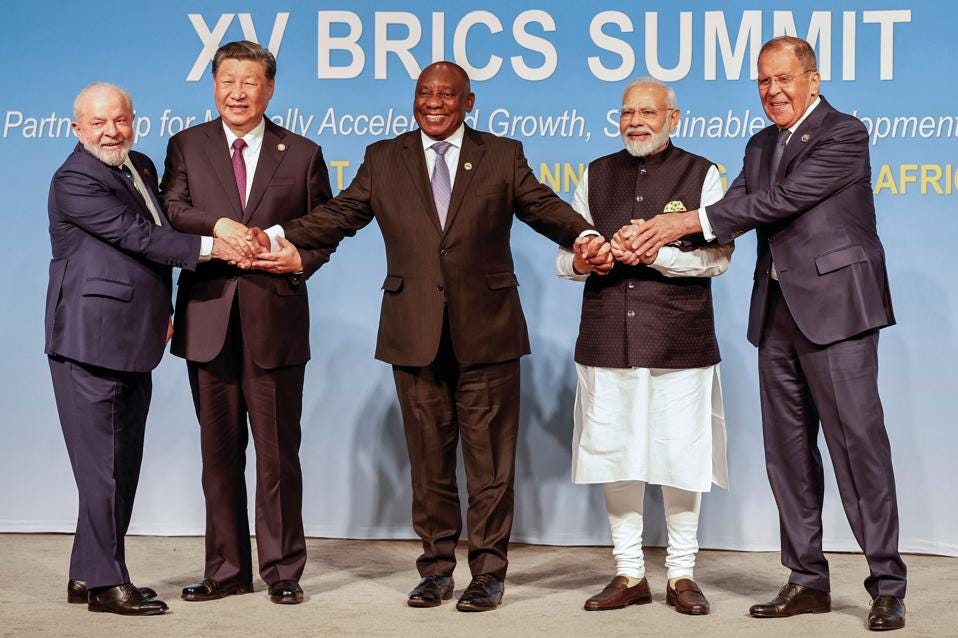(From L to R) President of Brazil Luiz Inacio Lula da Silva, President of China Xi Jinping, South African President Cyril Ramaphosa, Prime Minister of India Narendra Modi and Russia's Foreign Minister Sergei Lavrov pose for a BRICS family photo during the 2023 BRICS Summit at the Sandton Convention Centre in Johannesburg on August 23, 2023. (Photo by GIANLUIGI GUERCIA / POOL / AFP) (Photo by GIANLUIGI GUERCIA/POOL/AFP via Getty Images)
[Note: This story is also published at Forbes.com]
One of the predictions I made in January’s annual predictions piece (8 Consequential Energy Predictions For 2023) was that the BRICS Alliance would vote to add Saudi Arabia as a member when it held its annual summit in South Africa on August 22-24. As things turned out, the voting BRICS members – Brazil, Russia, India, China, South Africa – went further than that last week, adding five new member countries in addition to Saudi Arabia.
Those other countries that will now be admitted into the trading alliance’s membership include Argentina, Egypt, Ethiopia, The United Arab Emirates (UAE) and Iran. Even though this constitutes an extraordinary move, one that comes with potentially enormous geopolitical implications, it has been interesting to note a somewhat muted reaction to it thus far from western governments and press.
But we will note it here by detailing 8 Consequential Energy Implications Of the BRICS Expansion:
Keep reading with a 7-day free trial
Subscribe to Energy Transition Absurdities to keep reading this post and get 7 days of free access to the full post archives.




